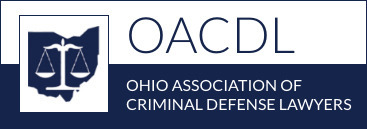Complete Story
Criminal Justice News This Week (week of 10-26-20)
Clear Masks, Juggling Jurors Mark Columbus' First Federal Trial in COVID-19 Era "Clear, plastic masks were among several changes made to accommodate a criminal defendant who demanded a speedy trial."
New Prosecutors See Justice, Not Convictions, As Their Goal "Crafting new incentives for career advancement, retraining employees and designating clear objectives are some of the ways to change the culture inside prosecutors' offices following this year's broad calls for racial justice, several prosecutors said during a virtual discussion headed by Stanford Law School."
Justices take up Fourth Amendment case "The Fourth Amendment generally requires police officers to get a warrant before entering a home. The Supreme Court has recognized an exception to that rule for emergencies, such as when the police are in hot pursuit of a suspect. In Lange v. California, the justices agreed to decide whether that exception applies when police are pursuing a suspect whom they believe committed a misdemeanor."
Federal judge rules against Treasury and IRS again: The incarcerated are entitled to stimulus checks "IRS is forced to extend to Nov. 4 a deadline to allow local, state and federal prisoners to claim tens of millions in stimulus money"
A flawed investigation left Jason Lively behind bars for 14 years for a fire he didn’t set. He’s not alone. "Advocates say his case illustrates a devastatingly common miscarriage of justice, especially in poor, rural swaths of the country, where defense attorneys are frequently underfunded and fire investigators often lack education and advanced training."
Eighth Circuit Decides Fourth Amendment Issue of First Impression "Court holds that probable cause is required to justify seizing a person for emergency mental-health evaluation."
How Amy Coney Barrett Could Shape The Supreme Court For Decades "How will Amy Coney Barrett's originalist interpretation of the Constitution impact the Supreme Court? NPR's Rachel Martin talks to Randy Barnett, constitutional law professor at Georgetown Law."

